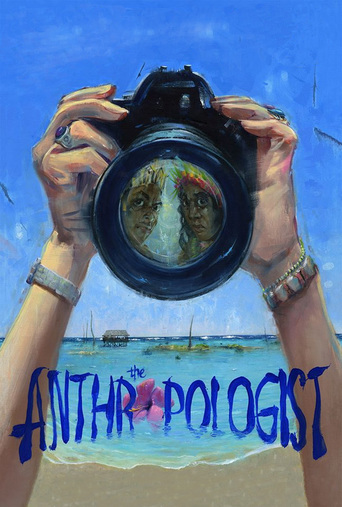StunnaKrypto
Self-important, over-dramatic, uninspired.
SpuffyWeb
Sadly Over-hyped
Tyreece Hulme
One of the best movies of the year! Incredible from the beginning to the end.
Alistair Olson
After playing with our expectations, this turns out to be a very different sort of film.
saveme-03581
Recently saw THE ANTHROPOLOGIST in class as part of World Anthropology Day. As an anthro student I was fascinated by its main subjects Susie and her daughter Katie. They travel to Siberia, Bolivia, and a small island in the South Pacific (can't remember name) to learn how climate change is impacting local cultures.The unique perspective of the people they encounter alone would make for a great film, but layered into the story is their all too real mother-daughter relationship. This made me cringe somewhat, as I saw a lot of my own hang-ups with my mom in there! (-: I thought it was a sweet, entertaining movie. I also learned a lot.
terrenceburbach
Full disclosure, I believe in climate change, but films on the topic tend to be doom-and-gloom with a side of preachy, overly earnest lecturing. To my surprise, this film is not that at all. Narrated by Kathryn, the daughter of a working anthropologist, and Mary Bateson, the daughter of Margaret Mead, The Anthropologist elegantly weaves together stories from past and present: how scientists piece (and have pieced) together human adaptation in a rapidly changing world. I had no idea what anthropologists do (aside from occasionally channel-surfing past Bones) and how they help us understand challenges we face as a global community. I highly recommend this gem of a film.
Tuco777
Over the course of five years, a mother and a daughter – the mother, Susan Crate, being an anthropologist – set out to study the impact of climate change on local communities across the globe. While the premise sounds promising, the film fails to deliver.With not much to show for in terms of direction and editing, it all depends on the story it tries to tell; being that of local communities trying to cope with the effects of climate change. Unfortunately, the narrative comes across as unstructured, unbalanced and not very coherent due to shoddy filmmaking and uneven pacing.In telling its story the film draws a parallel between the famous anthropologist Margaret Mead and Susan Crate. This comparison between Mead and Crate is unnecessary and ads little to the main message the film tries to convey. What's more is that the segments of Mead's daughter, Mary Catherine Bateson, only distract from the main storyline, something which affects the pacing negatively.Overall, the whole mother-daughter relationship which is rather central to the film feels forced. The way this relationship is presented even gives it all an amateurish feel – as if we are watching random philanthropists rather than real anthropologists.Crate and her daughter travel to three different places to speak to the locals in order to learn how they remain resilient in the face of environmental threats and changes. While every case offers plenty of interesting content to delve into, we only have time to gloss over them briefly. The filmmakers only scratch the surface and present nothing substantial. In fact, the three case studies presented here actually feel like separate episodes which have been crammed into a ninety minute film without eye for a coherent narrative. Together with Mary Catherine Bateson's interjections the three cases make for a very cluttered film.Had the film focused on only one of the case studies presented here then we might have been able to learn more about these people's lives, culture and coping mechanisms. In almost all cases, the people shown here live difficult lives and are all faced with the many challenges climate change brings. These people have a story to tell and an important message to convey yet in this film their voices are muted.What we are left with in the end is an unimaginatively and unprofessionally told story that has trouble defining what it is exactly: both an anthropological and an environmental film? It is unclear what it tries to be and without having a true identity all one can say about it is this: it's disappointing, and frustratingly so.
David Ferguson
Dallas International Film Festival Greetings again from the darkness. Following an anthropologist around for 5 years will either sound interesting to you or not. The hook here is that the filmmakers draw a parallel between acclaimed anthropologist Margaret Mead and her granddaughter Mary Catherine Bateson, and modern day anthropologist Susie Crate and her teenage daughter Katie.It's unclear how the three co-directors – Seth Kramer, Daniel A Miller, Jeremy Newberger- split the duties or shared contributions in telling this story over 5 years, but we follow Susie and Katie to Siberia, Kiribati (South Pacific), Peru, and Virginia. We witness how the melting permafrost is destroying wheat fields and slowly starving out communities. We watch as Susie goes glacier ice gathering in the Andes, and how the local community bonds over the haul. One of the director's half-jokingly referred to the film as the "Coming of Age Climate Change comedy" … saying that's their pitch as they push for distribution. While that's a catchphrase of which to be proud, I didn't find much humor here. In fact, as Katie ages from 14 through 18 during filming, I found her to be a bit of a drag on the pacing of the film … not nearly as interesting as she seems to find herself. Clearly her mother is a dedicated and intelligent professional, but the mother/daughter theme came across a bit forced.The film informs us that anthropology is the study of learned behavior which defines different cultures. Most of what they do is observe and record different cultures, and the changes that occur. There is also Susie's observation, "we don't change the world, we change ourselves", which is quite a profound thought from someone in her line of work.

